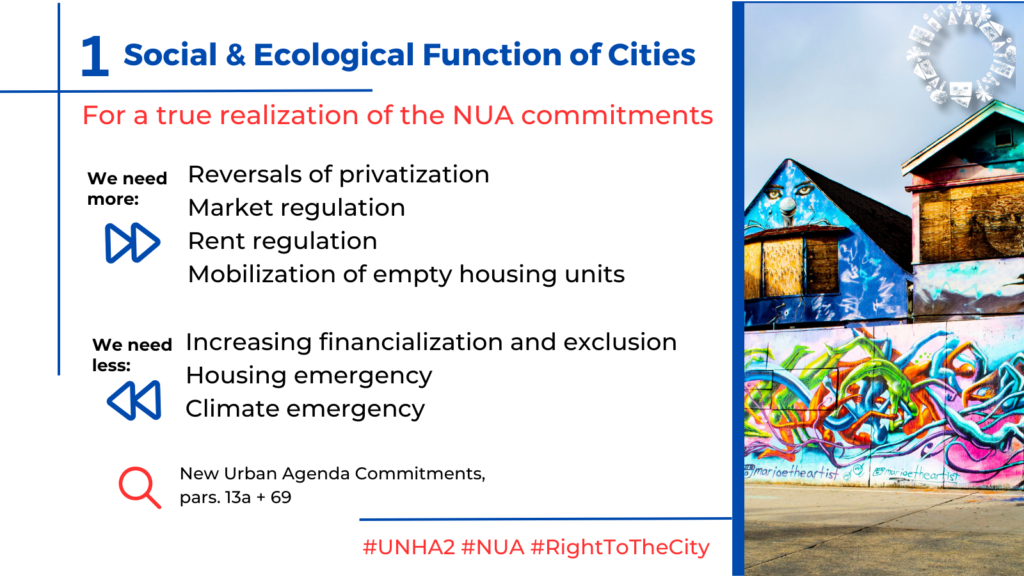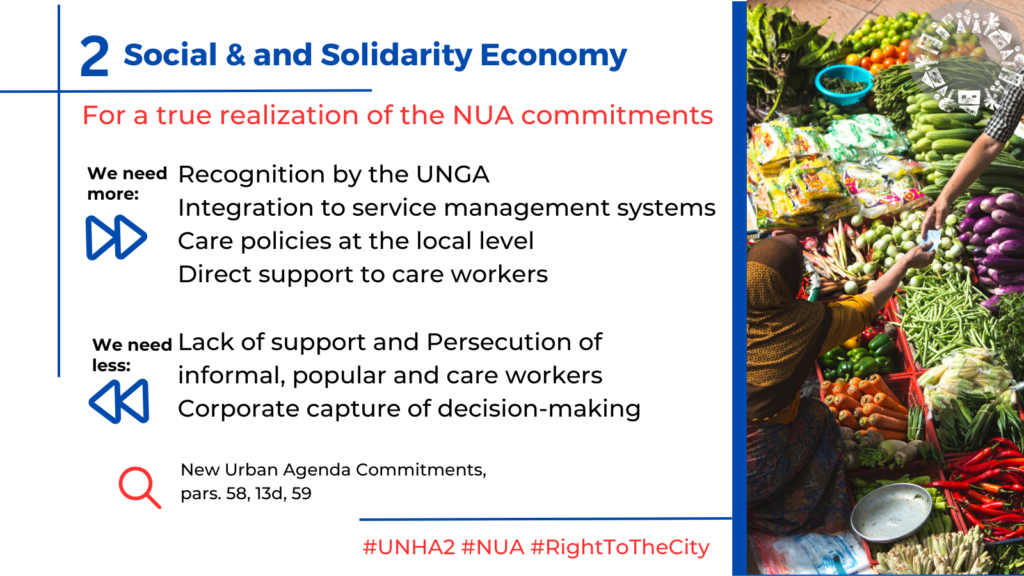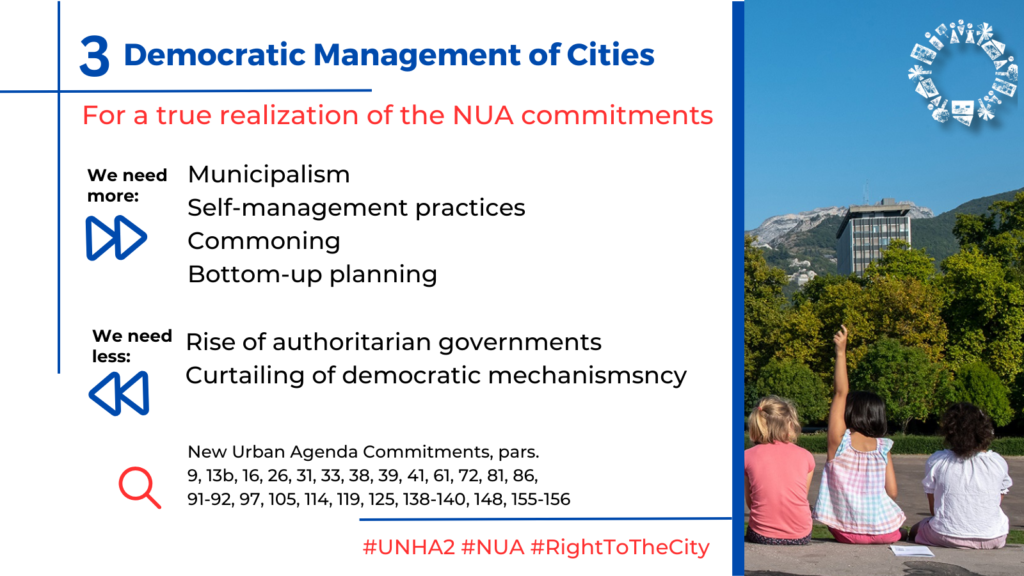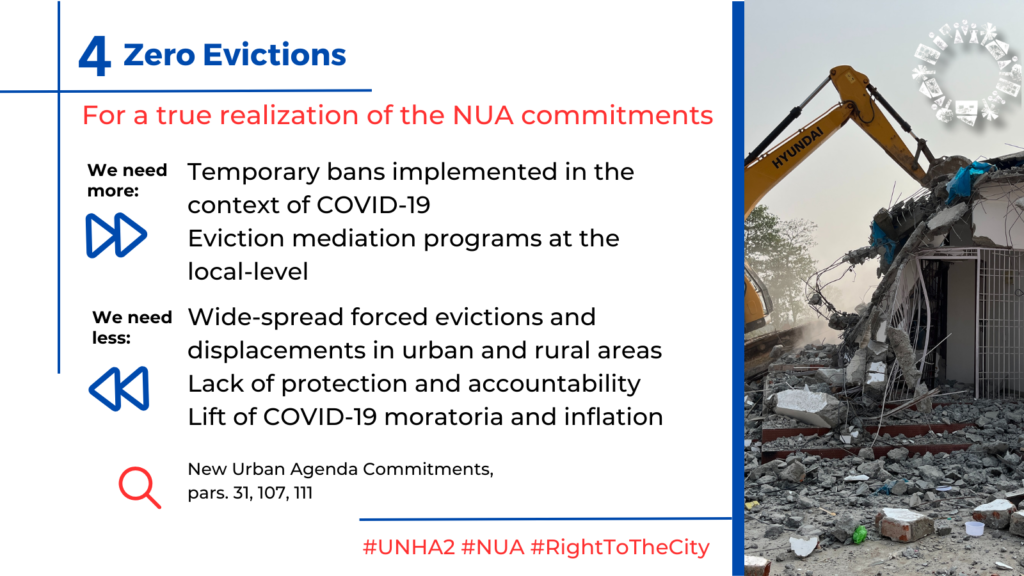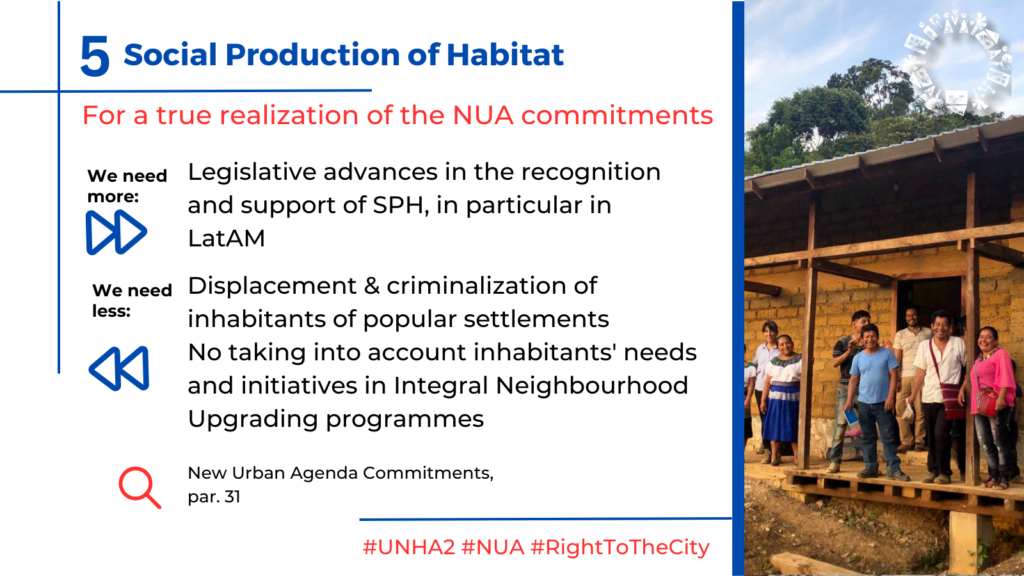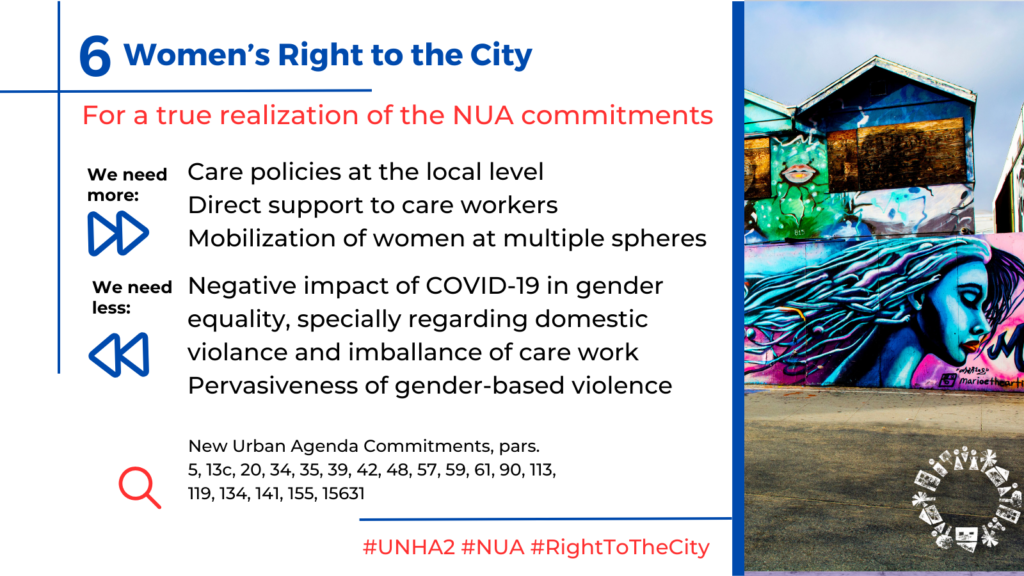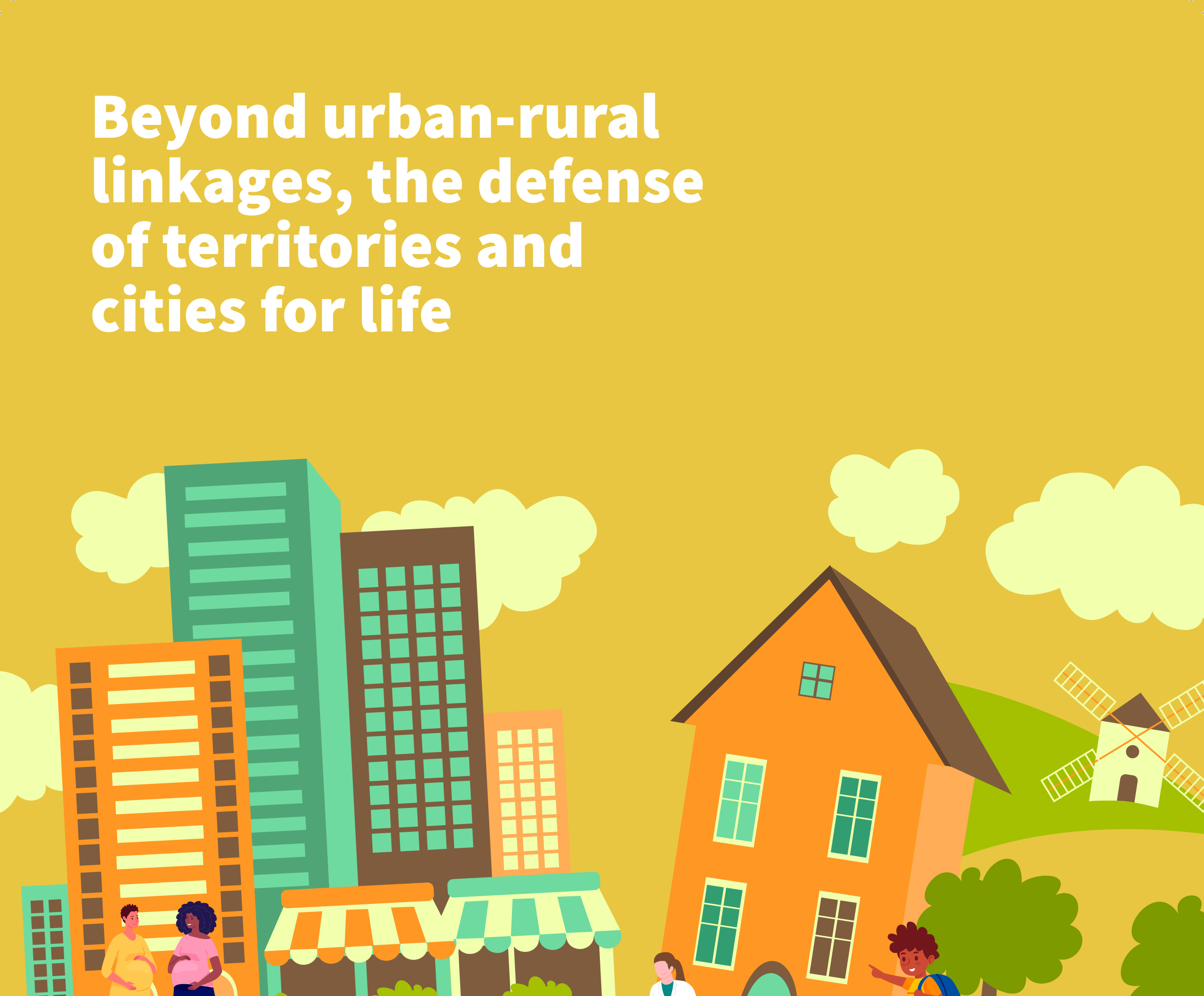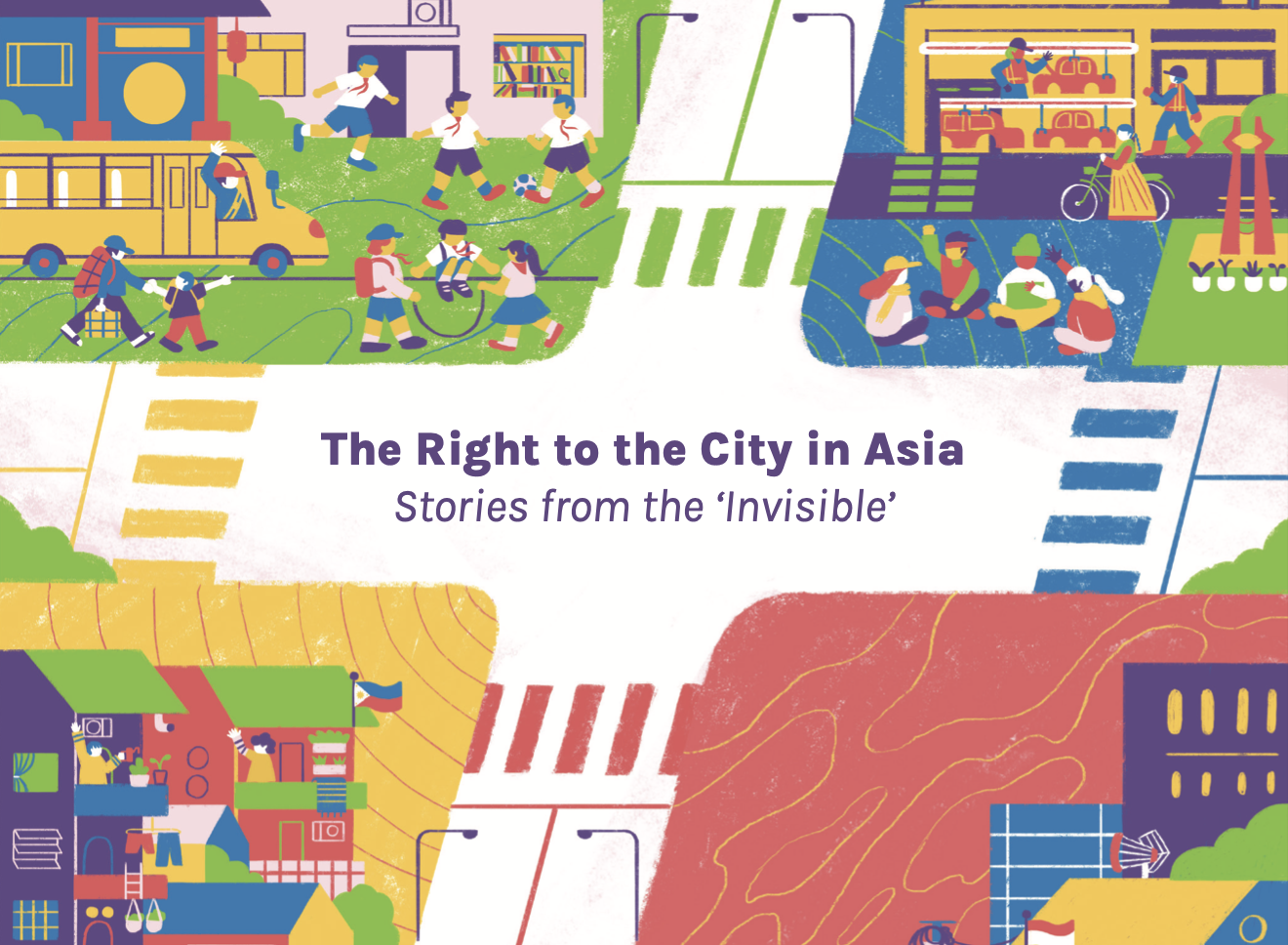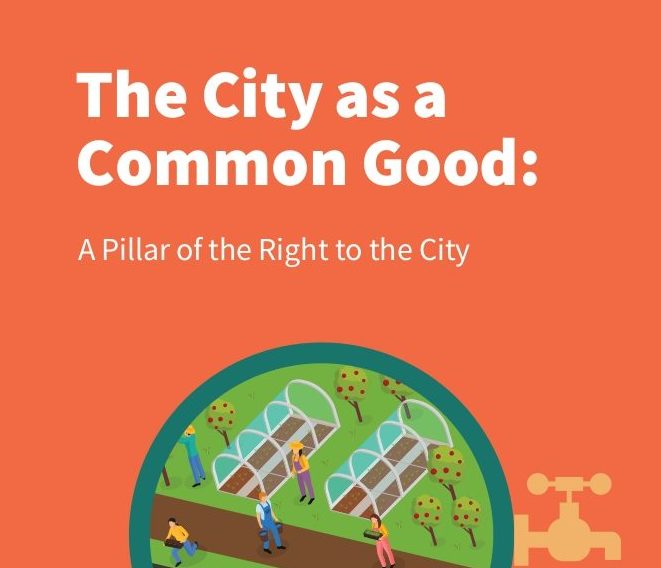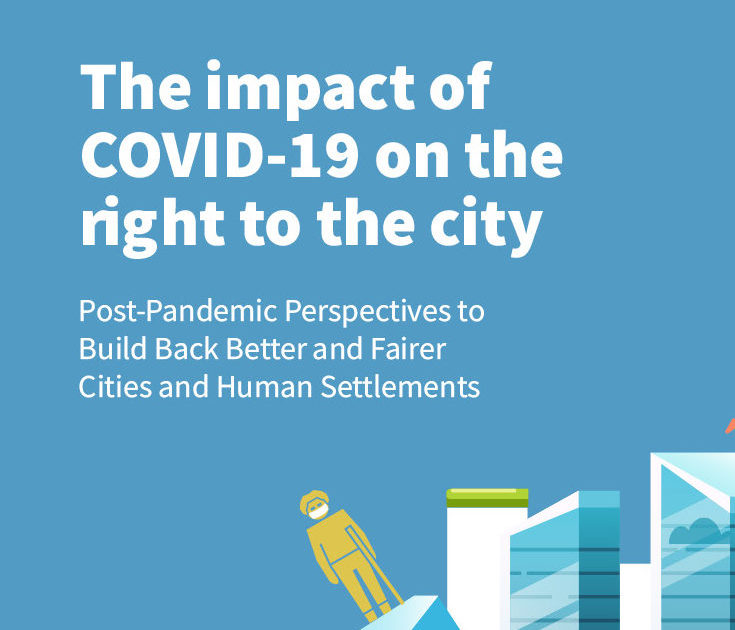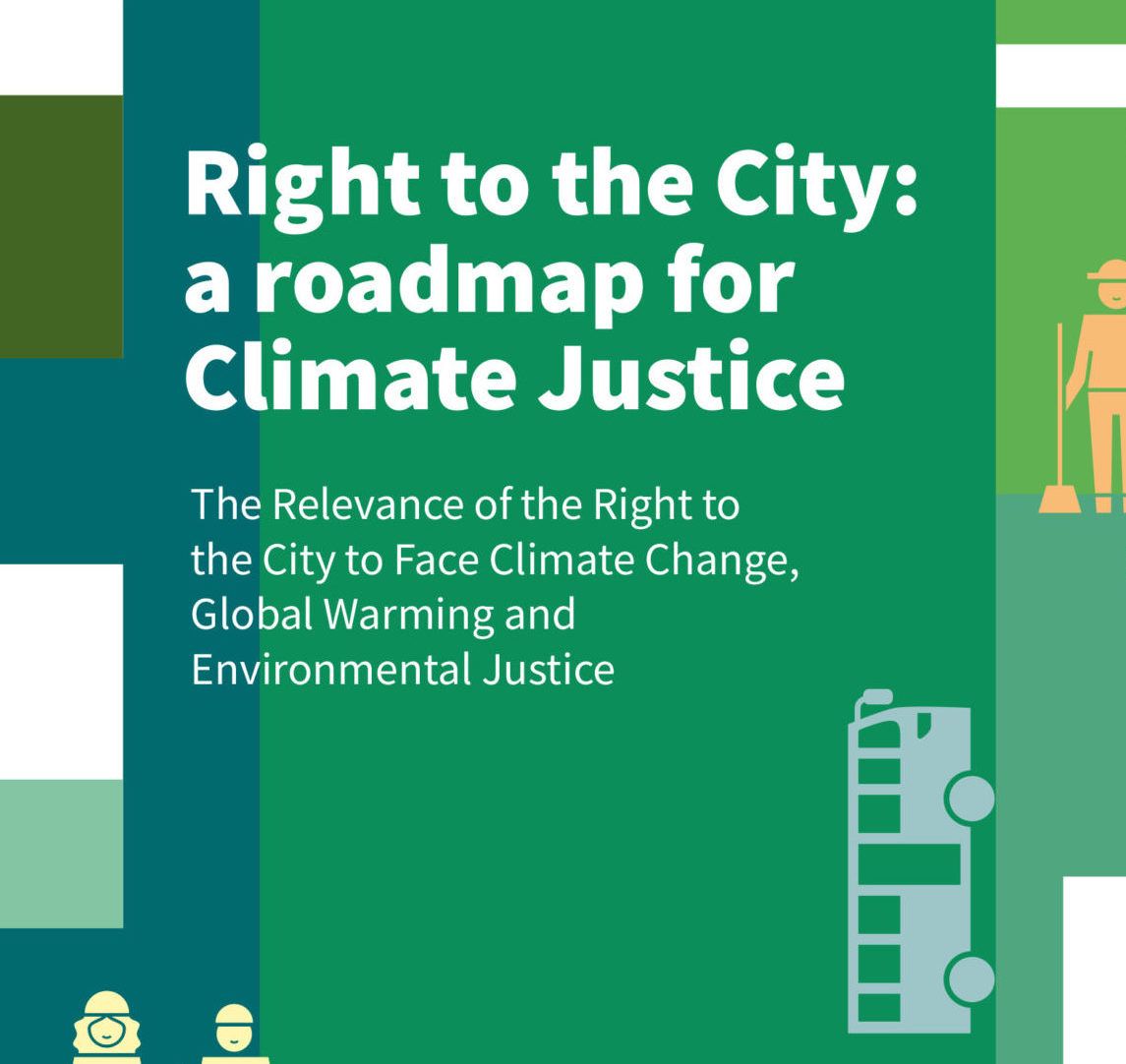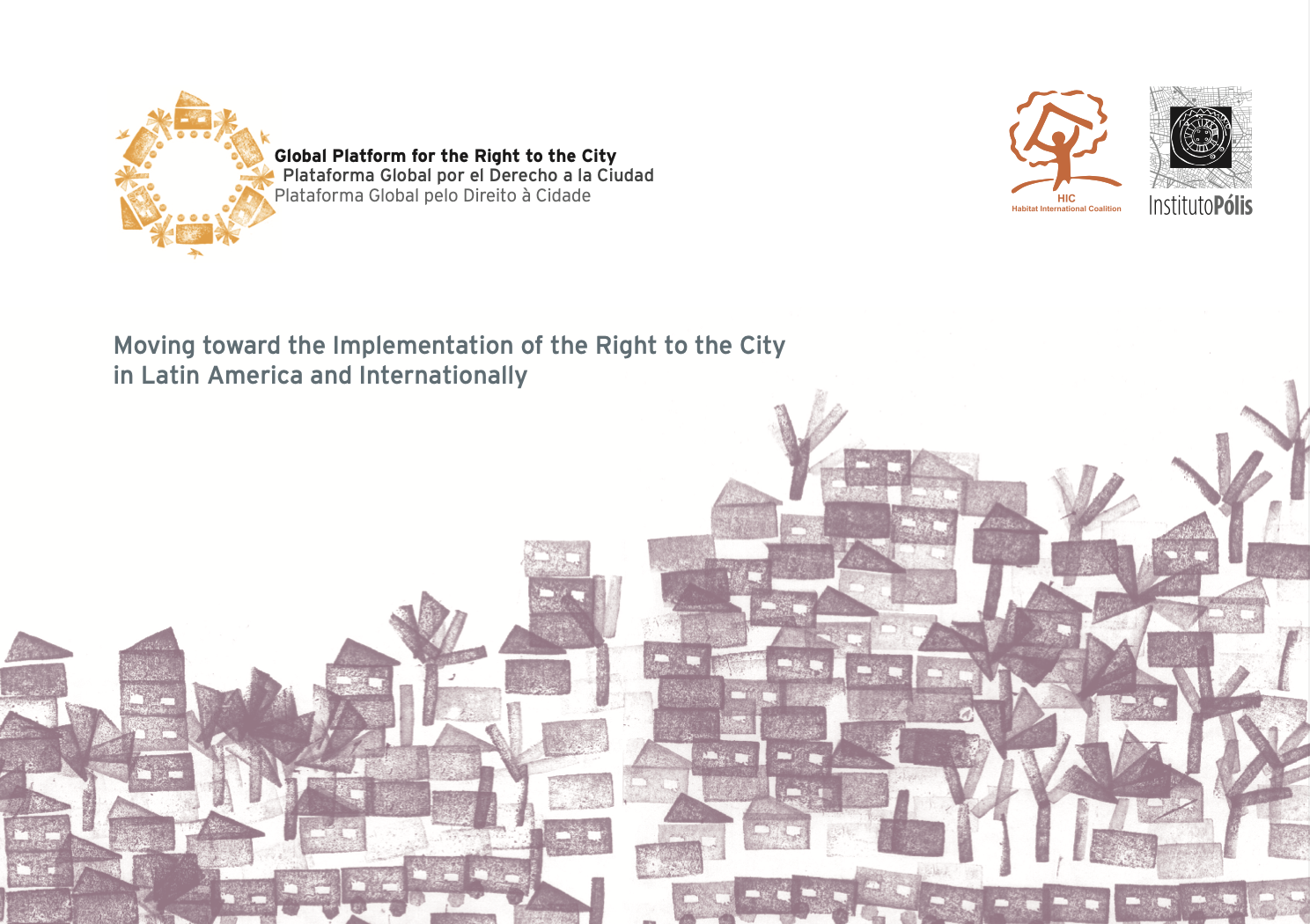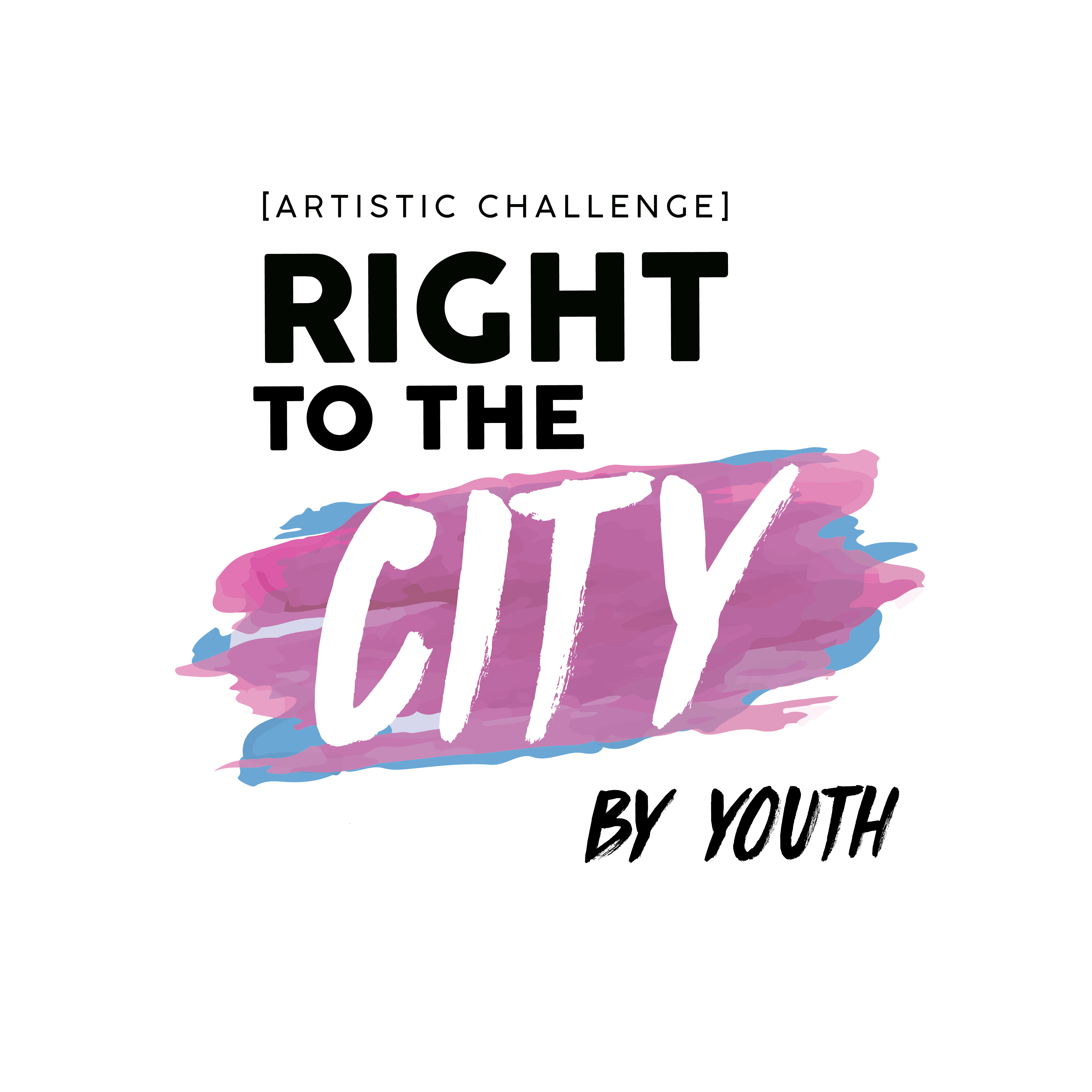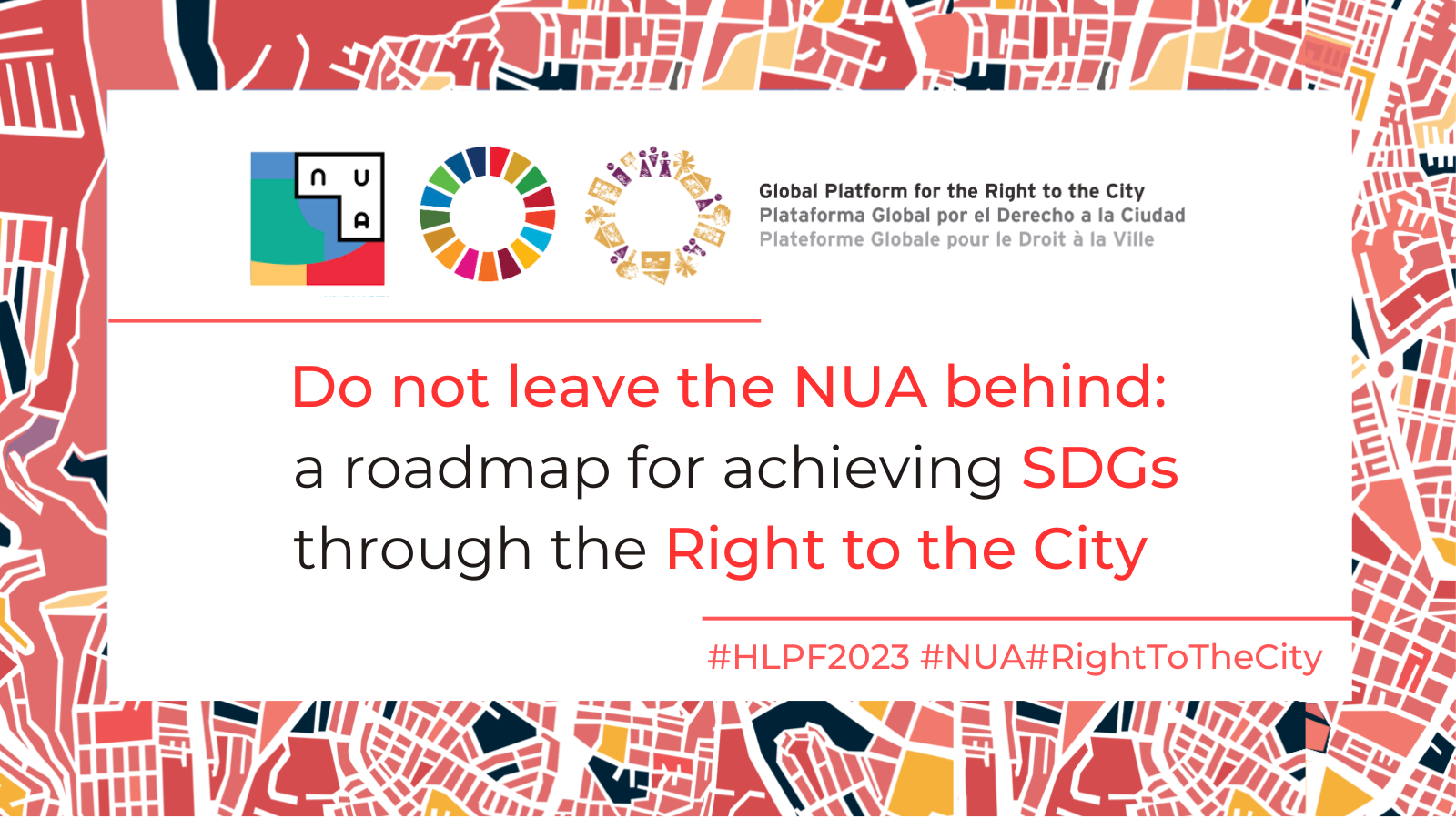
The Global Platform for the Right to the City (GPR2C) Members and Allies will be in New York to participate in the High-Level Political Forum 2023 ( 10 to 19 July 2023), continuing with our international campaign during the second session of the United Nations Habitat Assembly. to call on UN Member States and UN-Habitat to do not leave the New Urban Agenda (NUA) behind, a roadmap for achieving SDGs, through the Right to the City as a guide; and support civil society and local governments organizations as key actors for the implementation of the NUA and Agenda 2030.
As we have been claiming for years, the implementation of the New Urban Agenda should not be seen as separate from that of the SDGs or seen as limited only to the realization of SDG 11. Ever since its approval in 2016, NUA commitments are becoming increasingly invisible vis-à-vis the 2030 Agenda commitments. At the same time, especially through the consequences of the COVID-19 pandemic, some of it’s key points, such as the protection of housing, land and city’s socio-ecological functions, have gained a renewed visibility and importance. This is why we engage with the visibility and renewed commitment to some of the core values of the NUA to guide SDG implementation
SDGs under review
The HLPF in 2023, without prejudice to the integrated, indivisible and interlinked nature of the SDGs, will review in-depth:
SDG 6 Ensure availability and sustainable management of water and sanitation for all”,
SDG 7 Ensure access to affordable, reliable, sustainable and modern energy for all”,
SDG 9 Build resilient infrastructure, promote inclusive and sustainable industrialization, and foster innovation,
SDG11 Make cities and human settlements inclusive, safe, resilient, and sustainable ,
SDG 17 Strengthen the means of implementation and revitalize the global partnership for sustainable development.
As SDG 11 is under review, we take a renewed stance to put focus on the need to highlight both NUA commitments and the Right to the City as guiding elements for its implementation. However, at the same time, we also underscore their transversal importance for the realization of the 2030 Agenda as a whole, through a vision that is territorialized, transversal and rights-based.
Find out the ”Right to the City Agenda”, a document that shows how the different components of the Right to the City are key in the process of reaching the SDGs and the NUA, while also making the case that the Right to the City brings a new and necessary perspective for the implementation of the 2030 Agenda because it is in itself transformative in its agenda
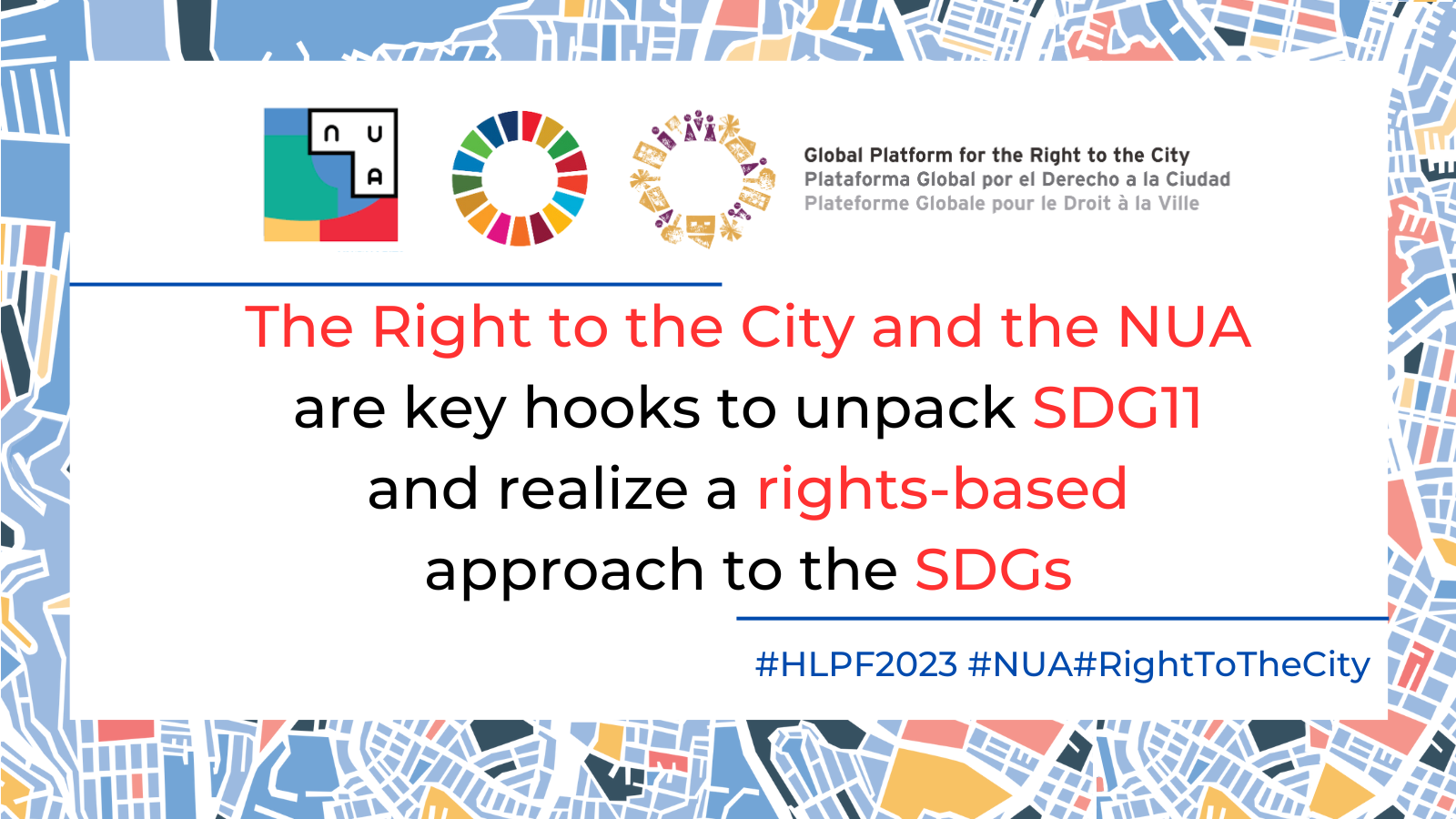
Collective Statement
on the occasion of the Second UN-Habitat Assembly
Walk the talk: a complete realization of the NUA commitments for structural change
By adopting the New Urban Agenda, UN Members States have committed to “achieve cities and human settlements in which all people can enjoy equal rights and opportunities.” (NUA, paragraph 12)
By adopting the 2030 Agenda, UN Members States have committed themselves to “a world of universal respect for human rights and human dignity, the rule of law, justice, equality and non-discrimination; of respect for race, ethnicity and cultural diversity; and of equal opportunity permitting the full realization of human potential and contributing to shared prosperity” (Agenda 2030, paragraph 8).
Civil society and local government organizations urge UN-Habitat and member countries to focus on concrete action paths anchored in the NUA and SDGs key commitments. We call them to:
- Commit to an accelerated implementation of the New Urban Agenda, leveraging the Right to the City as a driver for its realization, agreeing on concrete mechanisms for enshrining NUA commitments towards the transformation of urban and economic development models, with the central commitment of protecting the social and environmental function of territories, supporting community-led and social and solidarity initiatives and programmes, as well as advancing the democratic management of cities and territories through inclusive participation and collective decision making;
- Recognise and support local governments and civil society and community-based organizations as key stakeholders for NUA monitoring and effective implementation, building upon the transformative initiatives being driven by such actors, considering the city as a not-for-profit common good whose management must include the active involvement of the entire social fabric, promoting direct participation to incorporate the priorities, knowledge and practices of those directly affected by projects and policies, such as in the case of the proposed “Global Action Plan for transforming informal settlements and slums;
- Engage in a truly participatory assessment of the UN-Habitat strategic plan, supporting the participation of civil society, local and regional governments, and other stakeholders through a democratic, inclusive and self-organized Stakeholder Engagement Mechanism consistent with best practices across the UN System. This envisions UN Habitat, governing bodies and all relevant stakeholders advancing policies that lead to actions that support the transformative initiatives being led by those actors, under the principles of decentralization and democratic management of territories. This includes enhancing the people-centered approach by operationalizing the NUA principles and commitments with a comprehensive monitoring and evaluation framework, in stark contrast with the current reality of limited channels for participation in the monitoring framework. These measures would enable concrete action toward realizing the preventing and remedial purposes of human rights in the territories, considering the intersectional aspects of urban inequalities and the disaggregated and qualitative monitoring indicators to better address just and sustainable development of human settlements across the human habitat.
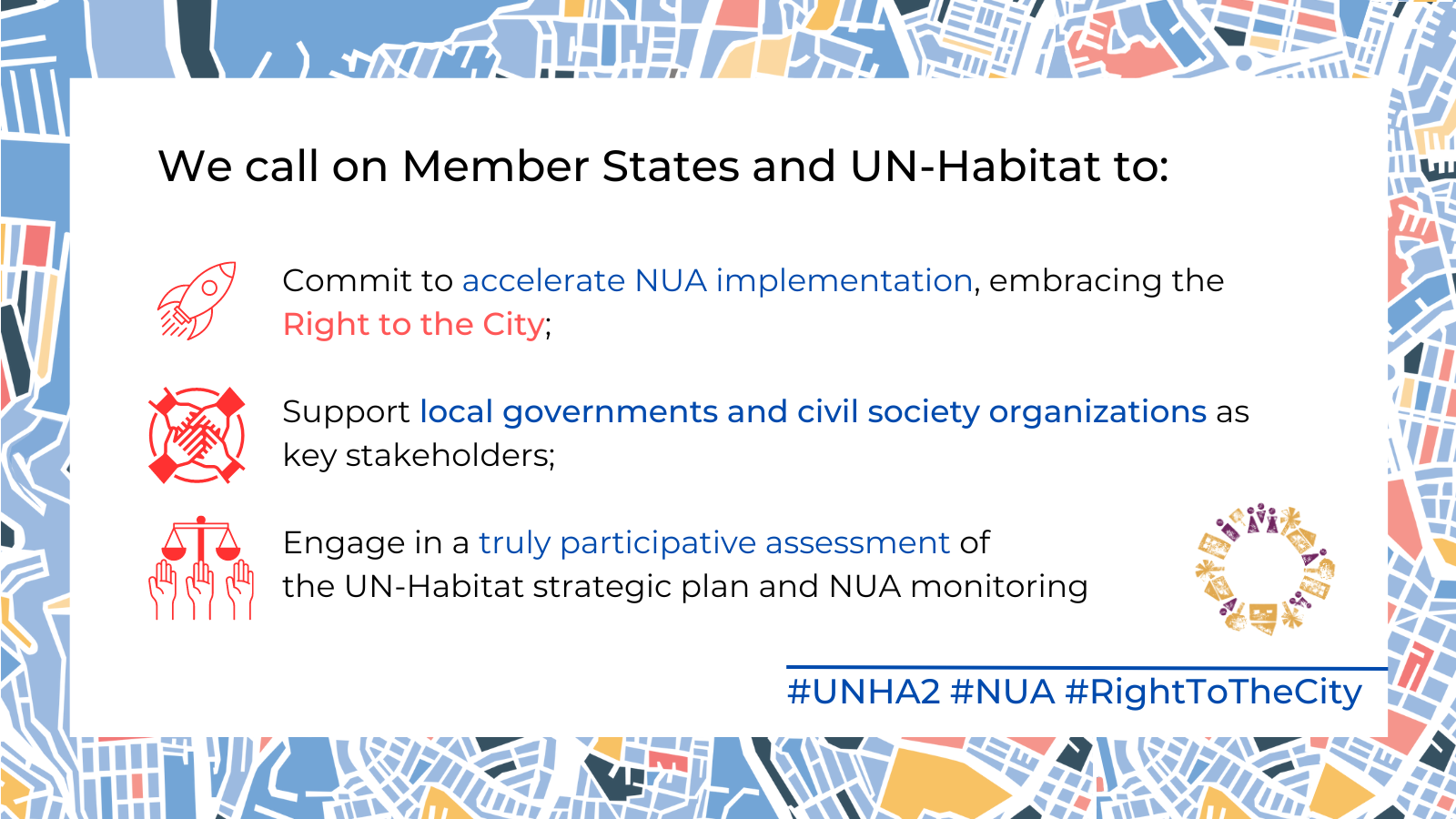
Principles to guide the advancement
of NUA and SDGS commitments
The Habitat III process reflected the deliberation of various actors to collectively commit to actions that make our cities, villages, territories and human settlements more just, inclusive, safe and sustainable. Key issues emerged toward the adoption of the New Urban Agenda (NUA), in particular regarding the respect, protection and fulfillment of human rights under the umbrella of the Right to the City, including women’s full and effective participation and equal rights; combating and preventing speculation, displacement, homelessness and forced evictions; ensuring the social and ecological functions of housing, land and the city; the need to further decentralize decision-making and resource-allocation processes; the recognition of cities as common goods; and the democratic management of cities and territories through more participatory and inclusive approaches, such as the social production of habitat.
About the High Level Political Forum

The High-level Political Forum on Sustainable Development (HLPF) will be held from Monday, 10 July, to Wednesday, 19 July 2023, under the auspices of the Economic and Social Council. This includes the three-day ministerial segment of the forum from Monday, 17 July, to Wednesday, 19 July 2023 as part of the High-level Segment of the Council. The last day of the High-level Segment of ECOSOC will be on Thursday, 20 July 2023.
Theme
The theme will be “Accelerating the recovery from the coronavirus disease (COVID-19) and the full implementation of the 2030 Agenda for Sustainable Development at all levels”.
In the forum, participants will be able to further discuss the effective and inclusive recovery measures to address the impacts of the COVID-19 pandemic on the Sustainable Development Goals (SDGs) and explore actionable policy guidance for the full implementation of the 2030 Agenda and the SDGs at all levels.
Official page


